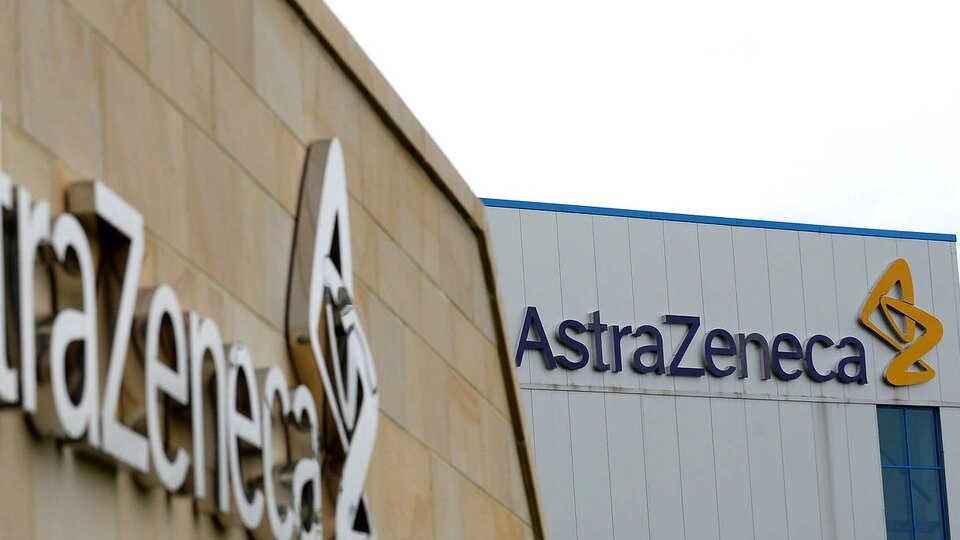
[ad_1]
Netherlands, Germany, Italy and France sadd to the list of countries that stopping use of the AstraZeneca vaccine against the coronavirus preventively after clots have been detected in people who had been inoculated with this formula. Indonesia, for its part, will delay for the same reasons the start of the vaccination that it had planned with this drug after the arrival of 1.1 million doses in the country.
This Sunday, Netherlands announced that he would suspend inoculation with the vaccine manufactured by the Anglo-Swedish laboratory until March 28, after “possible side effects” were reported in Denmark and Norway.
This Monday, they took the same resolution, without specifying dates, the authorities of France, Italy and Germany. As a spokesperson for the German Ministry of Health explains, the Paul-Ehrlich Medical Institute which advises the government “considers that (they are) necessary more exams“after cases of blood clots in people vaccinated in Europe.
For its part, the Italian Medicines Agency (Aifa) clarified that the measure was taken “as a precaution and temporarily throughout the territory”, pending the decision of the EMA, the European Medicines Agency responsible for evaluation in the European Union.
“The decision has been taken (…) to suspend vaccination with AstraZeneca as a precaution and we hope to resume it quickly if the recommendation of the EMA allows it,” said French President Emmanuel Macron in the same spirit.
In Indonesia, as, health regulators “delay AstraZeneca administration pending WHO confirmation”Health Minister Budi Gunadi Sadikin told Parliament. The Southeast Asian country, the fourth most populous in the world, received 1.1 million injectable doses this month and an additional 10 million are expected by the end of April.
The Danish Directorate General for Health (SST) reported in a press release last week that the suspension came “after reports of serious cases of training of blood clots in people vaccinated with the AstraZeneca covid-19 vaccine “and one of these people died. The state body also pointed out that “At the moment, we cannot conclude that there is a relationship between the vaccine and blood clots”.
The Norwegian government, for its part, said it had detected four serious cases of blood clots in vaccinated adults and on Saturday reported skin hemorrhages in young people who received the vaccine.
Other countries that have temporarily suspended the use of the AstraZeneca vaccine are Ireland, Iceland, Bulgaria, Thailand and the Republic of Congo.
during, from AstraZeneca, they issued a statement in which they state that the “careful examination of all available safety data on the more than 17 million people in the European Union and the United Kingdom” which they have received from your vaccine “has not provided any evidence of an increased risk of pulmonary embolism, deep vein thrombosis (DVT) or thrombocytopenia in a given age group, sex, lot or country. “
AstraZeneca argued that the 15 cases of deep vein thrombosis and the 22 pulmonary embolism recorded among those who received the vaccine represent a percentage “much lower than what should occur naturally in a general population“.
Andrew Pollard, director of the Oxford Vaccine Group, said: “There is very reassuring evidence that there is no increase in the thrombus phenomenon here in the UK, where the majority of doses in Europe have so far been administered. “
The World Health Organization (WHO) said on Friday that “there is no reason not to use” this vaccine.
However, the European Medicines Agency (EMA) considers a cause and effect relationship to be “probable” in at least some cases of “41 reports of possible anaphylaxis observed among 5 million people vaccinated in the UK”.
For AstraZeneca, these issues are in addition to the new revision of the drop in supply to the European Union in June and that the laboratory was forced to report alleged export problems.
.
[ad_2]
Source link
 Naaju Breaking News, Live Updates, Latest Headlines, Viral News, Top Stories, Trending Topics, Videos
Naaju Breaking News, Live Updates, Latest Headlines, Viral News, Top Stories, Trending Topics, Videos